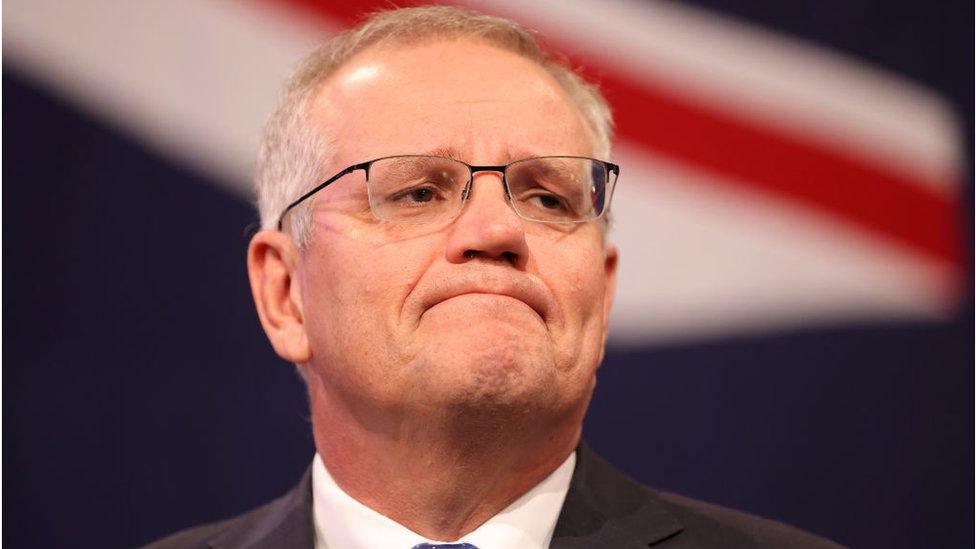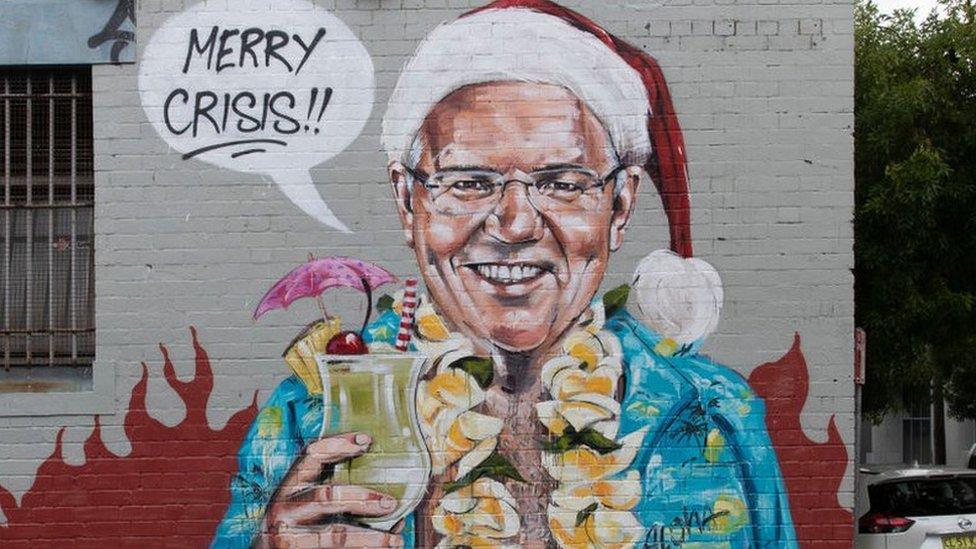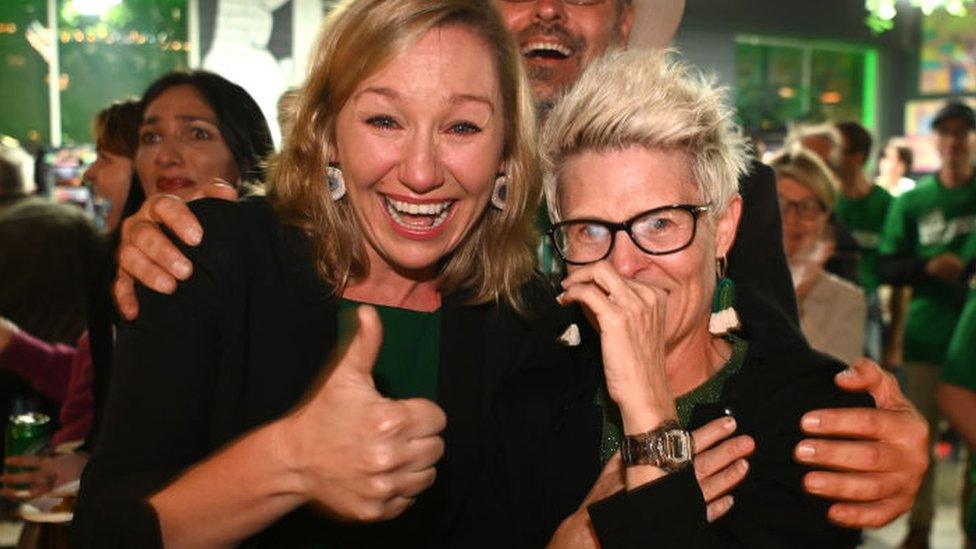Scott Morrison: Ex-Australia PM held five additional portfolios, Albanese says
- Published

Former Australia PM Scott Morrison was found to have held five additional roles in the ministry during his tenure
Australia's former PM Scott Morrison secretly held five roles in the ministry, the current Prime Minister Anthony Albanese says.
He described his predecessor's actions as an "unprecedented trashing of our democracy".
Mr Morrison is facing calls to resign as an MP following the revelations, which began emerging on Monday.
But he has defended his actions, saying it was during the Covid pandemic and he "acted in good faith in a crisis".
On Tuesday Mr Albanese said he had been told by the Department of Prime Minister and Cabinet that Mr Morrison became joint minister for the health, finance, treasury, home affairs and resources portfolios in the two years before losing power in May.
This "deliberately undermined the checks and balances that are so important and essential for our democracy", Mr Albanese said.
He added that it was "completely extraordinary" that these appointments had been kept secret from Australian voters.
Some ministers - including the then finance minister Mathias Cormann - were reportedly unaware they were sharing portfolios with Mr Morrison.
Former home affairs minister Karen Andrews told local media she would tell Mr Morrison to resign as an MP.
"For a prime minister to behave in this manner undermines everything that a federal government constitutionally should stand for," she told news.com.au.
However in a long Facebook post Mr Morrison sought to explain his conduct, which he said was designed to ensure government could continue operating if ministers were incapacitated by Covid.
"The risk of Ministers becoming incapacitated, sick, hospitalised, incapable of doing their work at a critical hour or even fatality was very real," he said.
He admitted that appointing himself to the extra portfolios had been unnecessary and said he had forgotten doing so. "There was a lot going on," he said.
But his decision to assume the resources portfolio was different, he said, because he needed to gain the powers to overrule his minister and block a controversial gas project.
"Once having been given the authority to consider this matter I advised the Minister of my intention to do so..." he said. "I believe I made the right decision in the national interest."
Mr Albanese said he would be receiving legal advice on Mr Morrison's actions from Australia's Solicitor General.


Yesterday the Australian public, media and political sphere were all left scratching their heads about how and why the former prime minister secretly appointed himself to several ministerial positions.
Today's revelations didn't make the matter clearer, but the list of ministries held by the former prime minister got longer!
At one point in his leadership, Mr Morrison was also operating as minister of health, finance, home affairs, resources and the treasury.
The high-profile ministries and the decision-making powers that came with them were all centralised by one person - and it was all done in secret.
If you're thinking this is veering off the democracy road you wouldn't be wrong.
I remember when the former leader would stand alongside his then health minister Greg Hunt to hold Covid briefings. Little did the public know that they were hearing from two health ministers - one of them secretly self-appointed.
This is so unusual and so politically discombobulating that current PM Albanese said the implications "are still being worked through".
There is still a lot to untangle about what happened - it's not entirely clear what administrative loophole the former leader used to assign himself all this power.
But what is clear is that this is a stark break with constitutional conventions. There's also a glaring lack of transparency. In a democracy, the public has the right to know who is in charge of what in any government so they can be held accountable.
That was not the case with the Morrison Government during the pandemic.
The former prime minister has argued that these were unprecedented times but did not explain why that meant he had to secretly share key portfolios with his ministers. If this was really about taking charge in a time of crisis, why the cloak and dagger approach?
Mr Albanese was asked if he knew why. He said "If you work it out, let me know…"
Related topics
- Published21 May 2022

- Published22 May 2022
